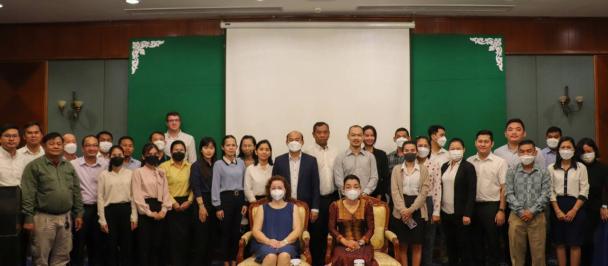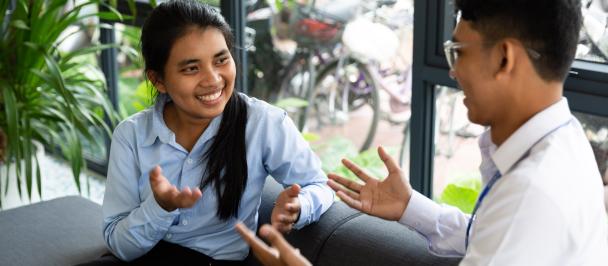Remarks by Ms. Alissar Chaker, Resident Representative, UNDP Cambodia
Local Project Appraisal Committee (LPAC) Meeting: Institutional Transformation for Gender Equality (ITGE project)
May 22, 2025

H.E. Dr. Ing Kantha Phavi, Minister of Women’s Affairs,
H.E. The Chhun Hak, Director General of the Gender Equality and Economic Development, Ministry of Women’s Affairs,
Representatives of line ministries, development partners and NGOs,
UN Colleagues and Distinguished guests.
Chum Reap Sour.
Today’s Project Appraisal Meeting is an opportunity to discuss and refine the design of the “Institutional Transformation for Gender Equality” project to ensure its relevance, feasibility, sustainability, and overall quality assurance. It follows a series of bilateral and group consultations with a wide range of key actors under the guidance of the Ministry of Women’s Affairs.
As a start, I would like to acknowledge the progress achieved so far in advancing gender equality in the country. According to the 2024 Sustainable Development Report of the United Nations Statistics Division, three out of four gender equality indicators for Cambodia show progress, notably access to modern methods for family planning, the ratio of women-to-men in education and the ratio of women-to-men participating in the labor force. However, it has also noted persisting systemic challenges such as economic discrimination, unpaid care work, and gender-based violence (GBV). Women continue to occupy lower-paid and precarious jobs, particularly in the informal sector, and they still face salary discrimination. According to the most recent gender wage gap analysis in Cambodia undertaken by UNDP in 2021, the gap is estimated to 19%. Moreover, women comprise 42% of the civil service, with women occupying only 27% of decision-making positions at the national and sub-national levels in 2024.[1]
The project to be discussed is driven by a shared commitment of the Ministry of Women’s Affairs and UNDP to address these challenges and build on the progress achieved so far by embracing an Institutional Transformation approach for Gender Equality. Its objective is thus to strengthen institutions, enabling them to tackle the root causes of inequality and bring about transformative change in line with the priorities set out in the Neary Ratanak VI. It will be implemented over a period of five years, from June 2025 to December 2029. Wide partnerships constitute the basic premises for its success. Thus, I invite you to provide both technical comments and partnership recommendations.
Excellencies and Distinguished Guests,
My colleagues will present the project with some details. However, allow me to flag the project’s strategic intervention areas:
- Moving from funding to financing gender equality.
- Addressing knowledge and data gaps.
- Enhancing capacity to systematically integrate gender using intersectional and whole-of-society approaches going beyond the public sector.
Excellencies and Distinguished Guests,
We see this project as a joint effort; it has benefitted from various rounds of your valuable insights. We hope that the network of partnerships can be strengthened for its successful implementation and advocacy.
In conclusion, I would like to recognize Her Excellency Dr. Ing Kantha Phavi for her leadership and strategic advice during the development of this project, as well as the Ministry’s team for their insights, recommendations, and ownership throughout the process.
I look forward to today’s deliberations for finalizing the project document and starting the hard work of turning together the project ambition into concrete results.
Thank you!
[1] https://kiripost.com/stories/27-of-decision-making-roles-in-government-held-by-women

 Locations
Locations

